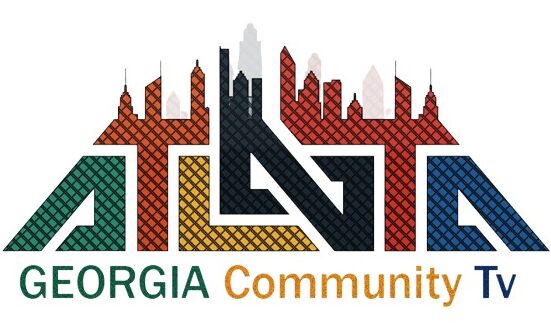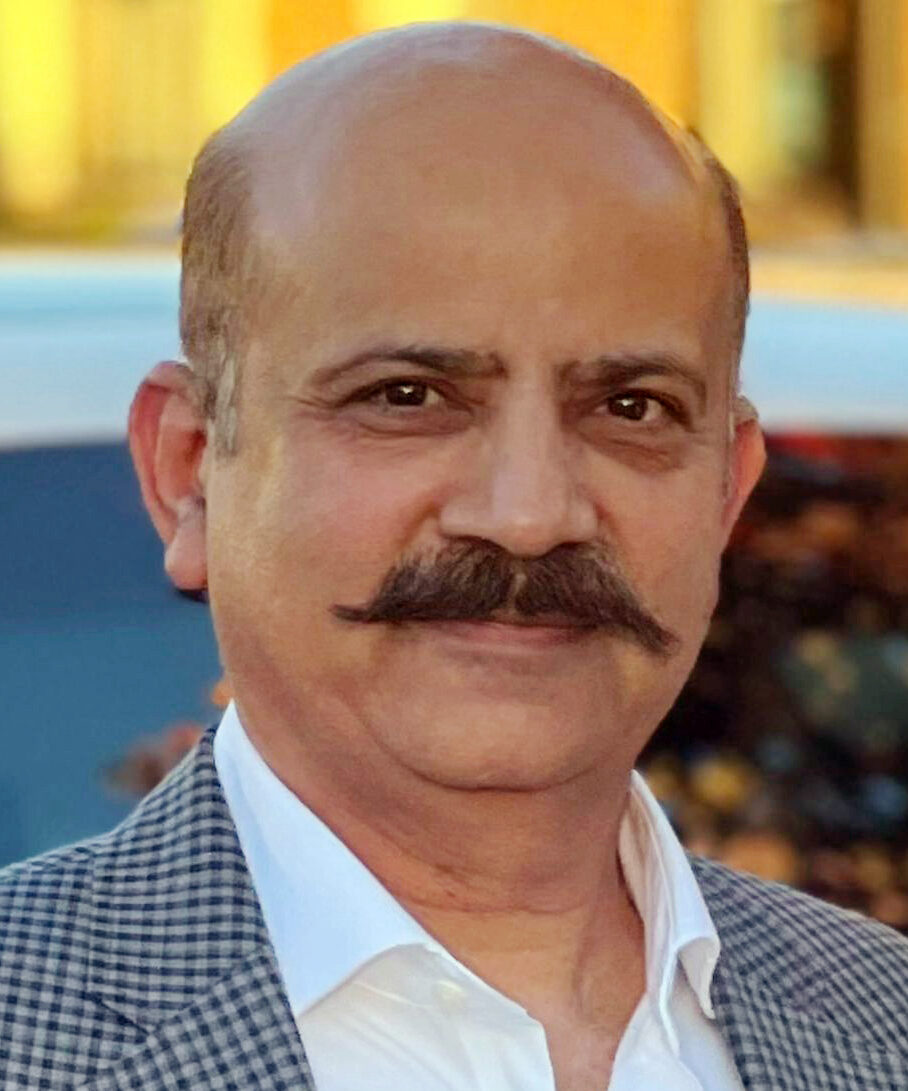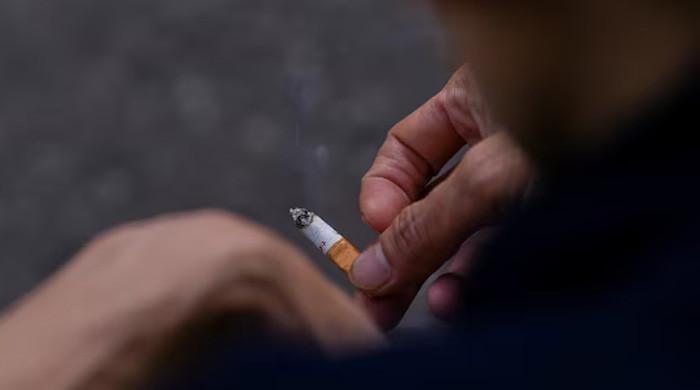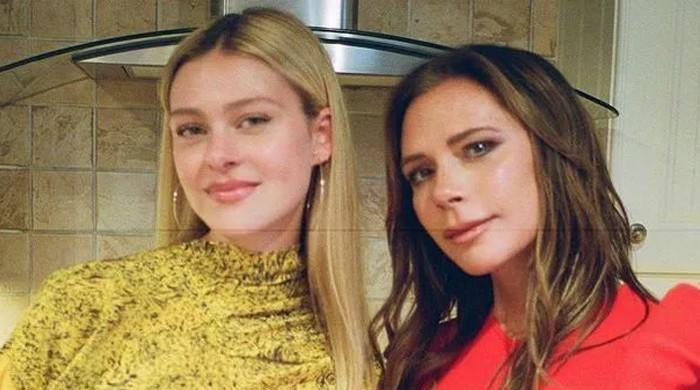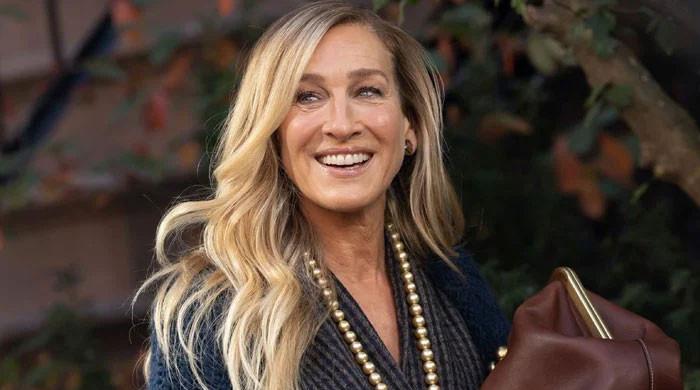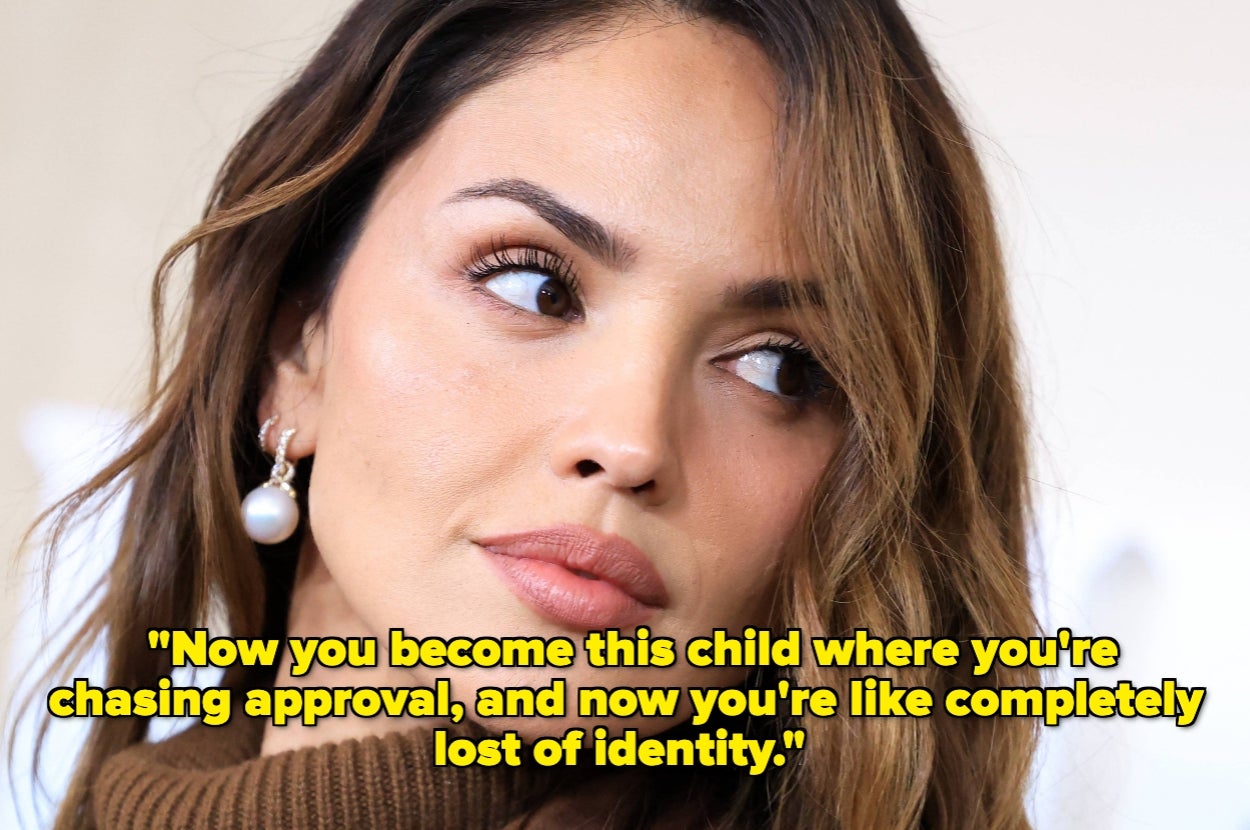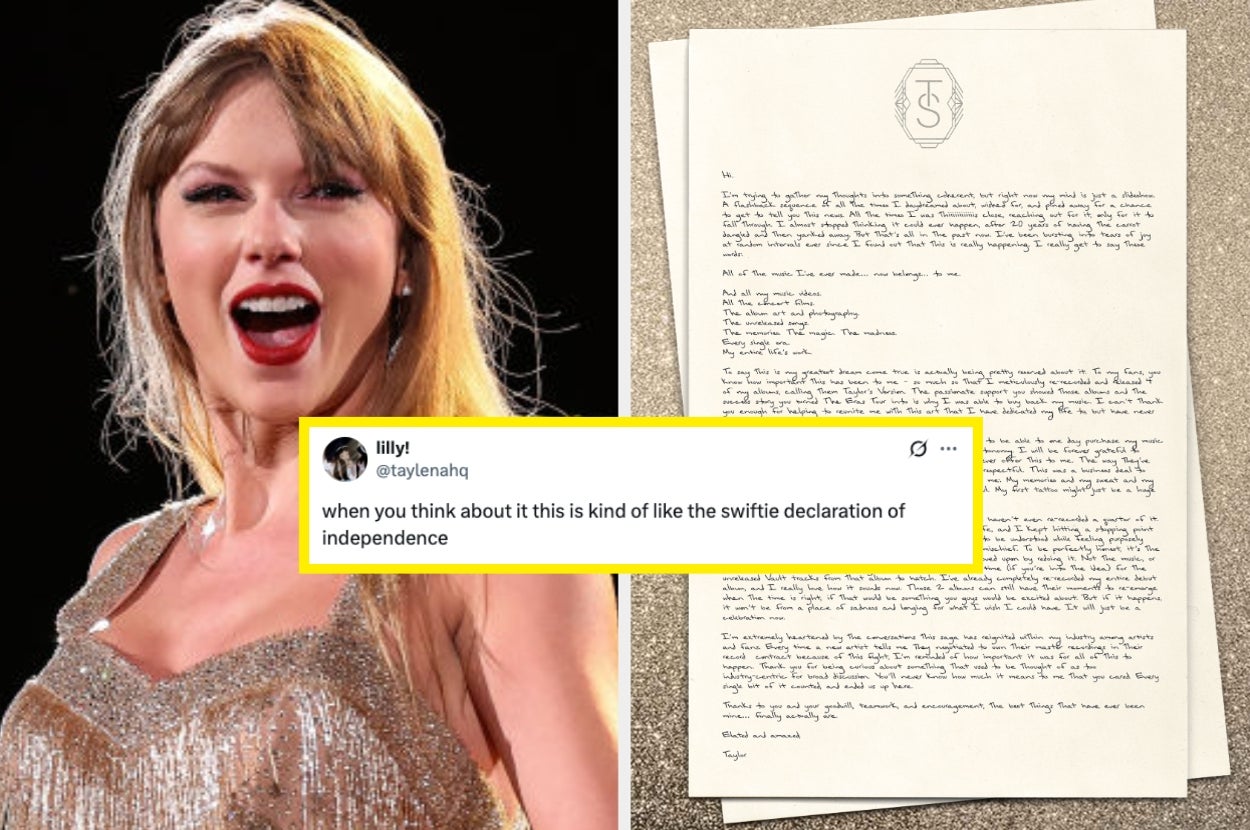Dinah Jane Revealed Why She Always Encourages Her Fans To Love Their Bodies “In Whatever Season It’s In”
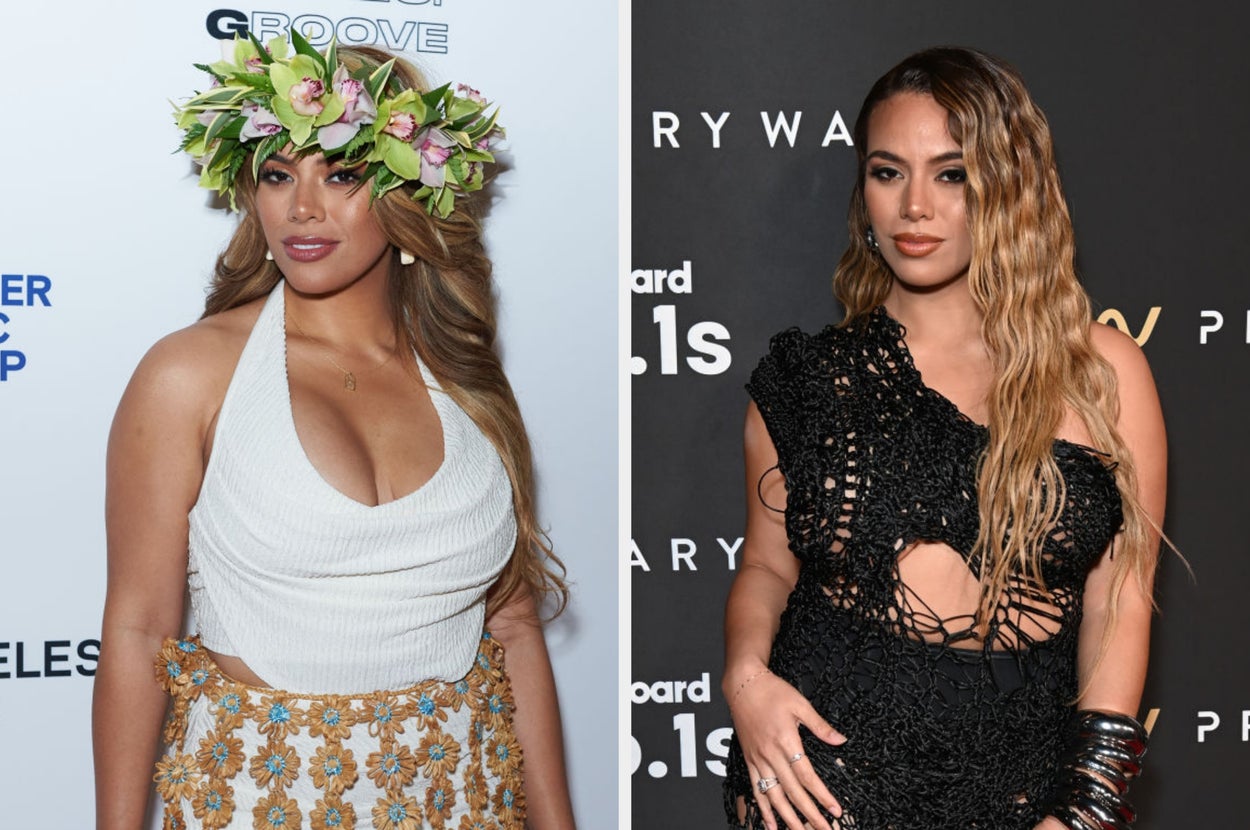
Dinah Jane was first introduced to fans on the second season of The X Factor, where she joined four other contestants to form Fifth Harmony. With hits like “Work from Home” and “Worth It,” they quickly became one of the biggest girl groups of the 2010s.
She began her solo career as a pop star, sometimes feeling at odds with her Tongan upbringing and culture. Now, Dinah has merged her two lives and created a sound that’s completely authentic to her.
For BuzzFeed’s Voices of the Pacific series, I sat down with Dinah to talk about her new music, incredible career, and thoughts on Pacific Islander representation. But as two Polynesian girls from OC, we hit it off and ended up chatting for ages!
Editor’s note: This interview has been edited for length and clarity.
BuzzFeed: You were only 15 when you auditioned on The X Factor and joined Fifth Harmony, the best-selling girl group of its time. If you could go back and say anything to your younger self, what would it be?
Dinah Jane: I’d go back to my younger self and say I’m so proud of her. Being one of the first Polynesian artists that have hit the mainstream world and reaching such heights with the success of the group, I’ve been able to experience so much. Coming from the small island and the small representation that we get, I’m grateful to have been a part of something, of a legacy, to give Polynesians a dream to go even further. I didn’t think a little girl like me from Santa Ana or of Polynesian descent would even see the type of success that I’ve been able to. I would say I’m so proud of her for taking care of her family at 15 years old. That was one of my dreams. They’ve invested so much into me through all the no’s and the auditions, with my mom being by my side, and my dad working two jobs and financially supporting me throughout the whole experience. I’m grateful that I was able to give back in such a way at 15, to give my parents a home, cars, and all those things they’ve been able to provide for me as a kid. I’m proud of her. I feel like I don’t credit myself enough.
BuzzFeed: That’s an important point because I think for a lot of Polynesians, we have so much pride in our people and our culture, but we’re so humble when it comes to ourselves as individuals.
Yeah, I’ve experienced that even in my adult life. The humility we are taught, and being Polynesian, we’re taught to always put family first. Especially being the oldest daughter of my family — oldest of eight — I have said, “OK, because I’ve been able to take care of everyone else now, let me take care of me.” A lot of us don’t give ourselves that gentle reminder that we matter as well. Because when you’re so used to being selfless, you forget to pour into your own cup. Now, I’m learning that with myself.
Are you still friends with any other Fifth Harmony members? Do you still talk to them?
I’ve been talking to them since the beginning of when we first went our separate ways. We built in the sisterhood. I think we were first sisters before we were even business partners, and that’s what made us so special. I hold on to that type of relationship that, even to this day, carries on that same energy. That comes from the big sister in me. It’s always love, and it’s always respect on my end. I feel like I’ve had these built-in sisters for the longest, and I’ll forever cherish the friendship we’ve had. It’s still the same type of friendship. Because we were able to overcome some obstacles throughout the years, we’re in a good place right now.
BuzzFeed: That’s so wonderful to hear after all these years. Were you so happy to see Normani’s recent engagement?
Well, in the midst of her getting engaged, I was dealing with some family funerals that were happening back to back. Coming from a big family, it’s heartbreaking to go through. But when I found out about that, I was like, “Oh my gosh!” There’s something happy to look at in the midst of my clouds that I’m dealing with. I’m so, so happy for her. A few months ago, not too long ago, I just asked her, “Hey, so what’s going on? When are you getting married?” She was like, “Girl, I hope soon.” And what do you know! [Laughs] I’m so happy for her. I would say I kind of called it into existence. [Laughs]
BuzzFeed: You manifested it for her!
Definitely manifested it for her! She deserves. We’re all getting to that age now. We’re all about to get married and have kids, and I’m just so happy to see everyone in their womanhood.
Have you ever faced challenges in your career as a Pacific Islander? If so, how did you overcome them?
Coming from a girl group, we’re all super ethnic; we range from all over. The audience always perceived that I was Latina or Latina/Black. So, I was told from people from above to kind of tuck a piece of myself away, being Polynesian, because we come from such a small demographic. They were probably thinking there’s not much of a market of selling me in that lane. I didn’t know how to juggle staying true to who I was, because after all the glitz and glamor, I’m coming home. Home to me is living with my 25 family members, and what I’m consuming here at home is the reality of my Polynesian [life.] We’re all big on family, big on God. It was putting me in the middle of picking and choosing who I was, this Hannah Montana effect.
In the midst of traveling with the girls, I made a trip to the motherland, to Tonga in 2016 with my grandparents. I flew them out right before our “7/27” tour, and I wanted to go home to have some inspiration before I hit the road. It was such a beautiful experience to witness the island with my grandparents for the first time and hear their stories. That triggered me to embark on my story even more. We do belong in rooms. I should never tuck away where I come from and my grandparents’s story. If I shy away from who I am, that’s me looking away from my grandparents, who have brought me to where I’m at. If it weren’t for them, I wouldn’t be receiving these type of blessings.
So, that was one of the things I struggled with a lot, my identity. I hit up one of my really good friends, who’s now my manager, my therapist, my mentor. He’s encouraged me to go [down] the paths our ancestors have always encouraged, keep dreaming, reach for the stars. I told him, “Please, what do I do? I feel like I’m losing myself. What can I do in my art, being a little more unique and more true to who I am?” When I changed management after 2020, I started diving into who I was meant to be this whole time.
“Ocean Song” off your most recent album, Juice County: Volume 1, is especially meaningful — you once spoke of it as an “ancestor call.” Can you talk about the music video?
That music video was so special to me. I went the lengths of telling a story, of involving every Polynesian woman in there, showing the natural beauty to us, our hair, our color, our body shape, down to the young girls that were in the music video. Arayah was one of the little girls in there, and she was just so full of light. She’s like, “I’m Tongan!” She’s full-on Samoan! And I was like, “You could be whatever Islander you want because we are one.” That comment, still to this day, gives me chills because she was proud to be of any ethnicity in the Polynesian realm. It’s beautiful to see that it’s touching so many young women and inspiring them.
I think our people are still trying to perceive my message in a way. Like, “Oh, wow. Dinah is coming back to us.” Those are the reviews I was getting from the comments, and I was trying not to look, but I’m just so proud of what I created. The transition of being a pop star and then going back to her roots is something some people are still trying to settle with. This is the type of project I’ve been wanting to dive into. Now that I’m an independent artist, I can champion myself and say, “I’m proud of you for taking the reins,” because I didn’t have that type of control when I was under a label. So now I’m here, having the most fun I’ve ever had in my career because I’m able to make my people proud.
It really feels like the album was your way of showing the world exactly who you are — from your pride in your roots to the musical influences you love. Can we expect a similar project in the future? Or are there other genres and parts of yourself you want to explore?
I feel like there’s so many versions of myself. I grew up listening to everything. My dad was a big reggae head, hip hop. He lived in LA, specifically Rowland Heights. You know what they say — what your parents listen to is what kind of makes you you, or it creates your playlist. My mom’s a singer herself, so I grew up listening to her singing Whitney Houston and every ’90s R&B artist. That’s where my mom was: Mariah Carey, Toni Braxton, SWV. And my parents are young, so I would say they had really good taste in music at the time.
If you could work with any Pacific Islander, who would it be and why?
Junior Maile. He was someone that really stuck out to me, him and Alo Key. I feel like those are the ones I really grew up listening to the most, and even the ones off of YouTube. Chris Ramos, he had a song that everyone was trying to do a cover to with the ukulele. Lateeya was big on her “Cheap Date” or her “Lullaby.” I would go back and collaborate with them.
I would definitely do a song with Aaradhna. She’s one of my biggest icons, over Beyoncé, over Mariah Carey. If it weren’t for Aaradhna, I really wouldn’t have started this idea of trying to be one of the first Polynesians to go mainstream. We’re always sharing love to each other online, and I literally get starstruck every time. Wow. People I grew up listening to and are my biggest inspirations are talking to me. To this day, I still get chills when she hits me up. I try not to say nothing wrong. I overthink my message. I hope I don’t sound like a fan girl too much. That’s just how much I love and respect her. She deserves her flowers.
For Pacific Islanders, there are so many aspects of our cultures that we hold close to our hearts, from our foods to our dances to our tattoos. What’s your favorite part of your culture?
My favorite part of our culture is the singing and the chanting. I was in Hawai’i in December, and I closed off my tour out there. The next day, I was able to go to PCC [Polynesian Cultural Center]. Anytime I hear Polynesians sing together in unison of any type of song without any instruments, it’s so chilling to me, and it takes me back home. It makes me feel like I’m back on the islands. It makes me feel like I’m back where my grandparents were walking, where their footprints started. When I was there in Hawai’i, I remembered experiencing them singing to us, to me. To this day, I still get chills about it because it was from the heart. The music is what really drives me and makes me cry. If they’re singing so beautiful and it’s a nice song, I feel like it’s such a lullaby when our people sing. That’s the type of lullaby I could sleep to, cry to, champion. I would love to listen to us singing before I go on stage because that’s what will hype me up. There’s just so much power and spirit. You just feel like your ancestors are in the room, singing with them and speaking. They were singing Māori, and I don’t know much of the language, but I feel like that’s what makes our people feel like one. If it’s Tongan, if it’s Fijian, if it’s Samoan, whatever language it is, it still feels like home.
Do you have a favorite Tongan food?
It’s hard to choose one thing. I was in Utah not too long ago, and I went to Pacific Seas, off of Redwood. That’s the first thing I wanted when I landed, Tongan food. So I get there, and the first thing I say I want on my plate is lu sipi. It’s like the Samoan palusami. Tongans, we like adding more, we’re a little extra. Taro leaves, you have meat in there, you can have corned beef in there, or sipi, lamb, coconut milk and onions and all that.
What advice do you have for young Pacific Islander creatives?
As cliché as this may sound, stay true to yourself and tell your story. If not your story, tell your mom’s story, tell your parents’ stories, tell your grandparents’ story within your music. It may seem little to you, but that simple thing would definitely change your perspective and influence you within your music.
There’s some songs I’ve been able to dedicate to my grandparents, “Ocean Song” being one of them. Because of that, that changed my perspective with my music, of how I want to carry it out my whole career. Share a little glimpse, whether it’s telling your story or share the instruments within our music. It was so important for me to include the ukulele, to incorporate our type of chants, the Sipi Tau, in my “Ocean Song.” I’m including the rugby players that played back in 2017 [where] I performed; I was able to share their warrior cry within my music. Just those little things will definitely make a big influence with what you do moving forward. Never forget your roots and incorporate them in everything you do.
How did you feel when you sang the Tongan national anthem at the Rugby League World Cup Semi Final?
Girl, it felt like I was singing for the Super Bowl! I know no one in America will ever experience something that I did in that moment. I don’t think there’s another stadium you can ever experience with your own people singing with you. The players started losing tackles, and when that happened, our people started singing hymns to encourage them to get to the end. And I kid you not, I know the players were so driven by that. Even though they lost in 2017, I would take away from that World Cup that our people still won at the end of the day because we were so one, and we were showing everyone who we were. And I feel like they lost because of the refs. We would have won, but they were not ready for the red sea to take over the whole country [laughs]. But I would definitely say that was one of the best experiences in my life. The Polynesian Super Bowl was definitely something to experience. If you weren’t there, you missed out, because there was never another like that.
BuzzFeed: I could see even in the videos I watched. The emotion, people crying, such a strong, beautiful moment of unity.
Exactly. Before I even got there, my uncle was the one putting it all together. And he’s like, “Hey, so they have a track for you to go with the anthem.” And I told him, “No, I don’t want the track. I just want the people to lead me.” And he was like, “OK! If that’s what you want, you’d be the first.” But I had a feeling the people, we were going to lead each other with the anthem. I’ll call it a hymn. And what do you know? They did lead me, and I was able to make it to the end without crying.
My mom’s family from out there, they dressed me. My aunty made my outfit from scratch. My dad’s family flew in from Brisbane, and they were like, “We’re going to get you ready, too.” I had a great-grandma there, and she was also helping me rehearse it before I went on stage. To have all my people in that room, I’ll never forget how they were able to prepare me for that big moment. It wasn’t just for me. It made me realize that was for all of us.
You’ve spoken extensively about the importance of body positivity, encouraging your fans to love their figure, “whatever season it’s in.” You’ve also shared that you hope to be an example specifically for brown-skinned boys and girls. Why is spreading this message of self-love so meaningful to you?
It’s so meaningful to me because I think of the faces that I helped raise: my first cousins that grew up with me in this home, my siblings. As I transition into being a woman or becoming an adult, I think of their faces, of how they also are about to transition into that, and the realization of the representation, we don’t get enough. My siblings are big on sports. My brothers are all football players. My sister sings. I would hear them discouraging themselves, like, “Oh, I’m not pretty enough. I’m not cute enough. I’m not skinny enough to play that sport.” It would just put a toll on my heart because that’s definitely the last thing you want to hear as an older sister. Being so protective with my siblings, I felt I should share that awareness with others, of loving on yourself and knowing that you’re important and loving your body figure in whatever season it’s in, loving the skin color you’re in, and embracing everything that comes with you. Because it’s not a flaw, it’s a beauty that comes from your ancestors, comes from your bloodline, and it’s something that you should always champion and carry through, because your beauty is your family’s beauty.
I hope everyone always shares that message with each other within our community, that you are beautiful and that you are important, and that you are talented. We should always push them to reach for the stars and keep wanting more, and there’s no limit to where we come from and to our success.
Finally, what does being Polynesian mean to you?
Being Polynesian means, to me, God first, family second, and then prioritizing you. I love that we all have that type of structure within our community. With God, anything is possible, even overcoming the impossible. With family, you’re able to take your village with you anywhere with your success, and they will always genuinely support you and carry you through any difficult times. And with you, being proud of who you are and where you come from starts at home.
